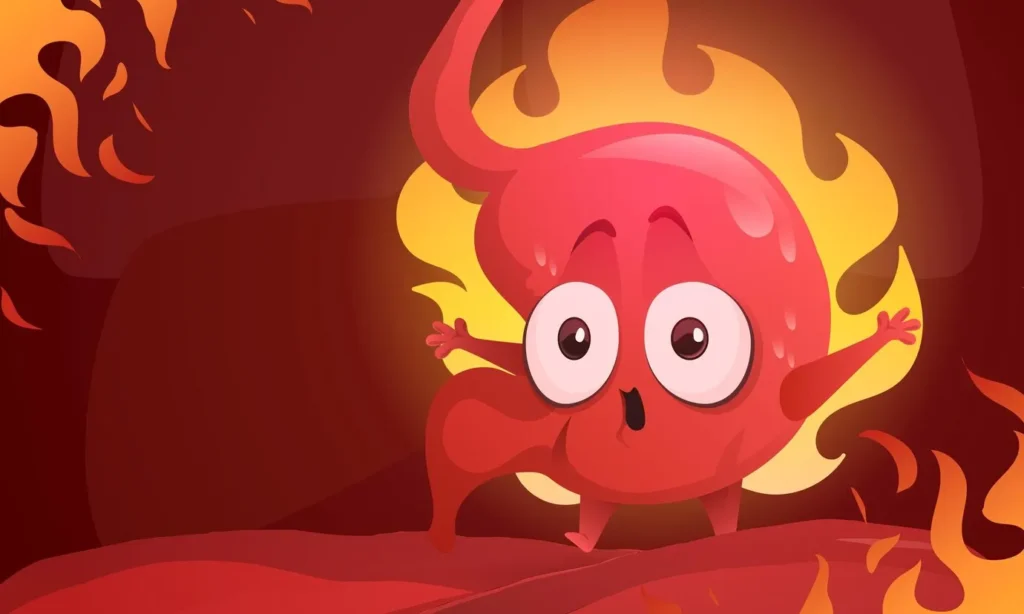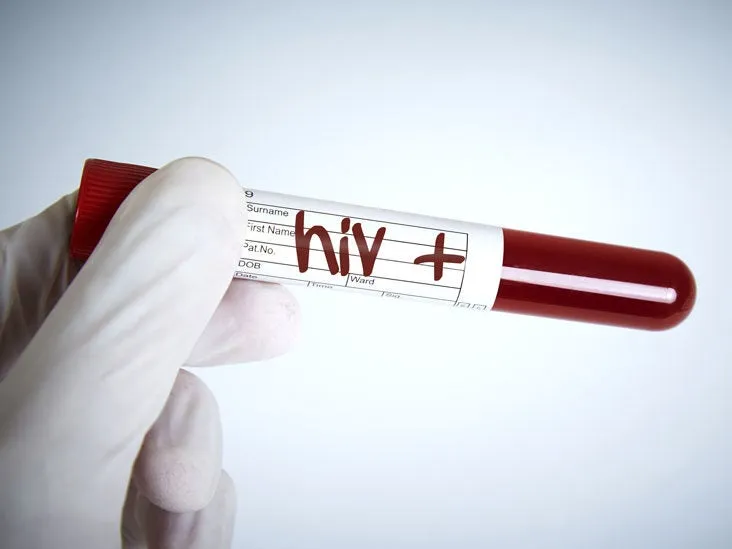Ever experienced that uncomfortable burning sensation in your stomach after a meal? This common symptom can disrupt your day and leave you wondering what’s happening inside your body. Stomach burning after eating is often caused by excess stomach acid, certain foods irritating the stomach lining, or conditions like acid reflux and gastritis.
The timing of this discomfort is significant—occurring specifically after meals suggests a direct relationship with food consumption. Certain trigger foods like spicy dishes, citrus fruits, tomatoes, coffee, and alcohol can intensify this burning sensation. Additionally, eating large portions or consuming meals too quickly might exacerbate the problem.
For persistent or severe stomach burning, consulting with a healthcare professional is essential for proper diagnosis and treatment. Gastroenterology specialists at medical centers like LocalMD in NYC offer comprehensive evaluations to identify the underlying causes of digestive symptoms and develop personalized treatment plans to address your specific condition.
Understanding the Burning Sensation in Your Stomach
The burning sensation in your stomach often signals underlying digestive issues that can range from mild to serious. This uncomfortable feeling typically occurs when something irritates the protective lining of your stomach or disrupts normal digestive processes.
Common Symptoms Associated with Stomach Burning
Stomach burning rarely occurs in isolation. Many people experience additional symptoms that can help identify the underlying cause. Burning in the stomach (also called dyspepsia) frequently accompanies feelings of fullness, bloating, and nausea.
Some individuals report a gnawing or painful sensation that worsens after eating. Belching and acid regurgitation may also occur alongside the burning feeling. These symptoms can range from mild discomfort to intense pain.
In more severe cases, stomach burning might be accompanied by difficulty swallowing, unexplained weight loss, or black stools. These symptoms warrant immediate medical attention as they could indicate serious conditions.
How Digestion Works and What Can Go Wrong
The digestive process begins when food enters your mouth and continues as it travels to your stomach. Your stomach produces acids that break down food, while the stomach lining secretes protective mucus to prevent these acids from damaging tissue.
When this balance is disrupted, burning sensations can occur. Common causes include:
- Excess acid production: Sometimes triggered by stress, certain foods, or medications
- Weakened stomach lining: Can result from frequent use of NSAIDs or other medications
- H. pylori infection: A bacterial infection that damages the stomach lining
- Food intolerances: Certain foods may irritate your digestive system
Digestive issues like GERD (gastroesophageal reflux disease) cause stomach acid to flow backward into the esophagus, creating a burning sensation. Gastritis, an inflammation of the stomach lining, can also produce uncomfortable burning feelings after eating.
Primary Causes of Stomach Burn After Eating
That burning sensation in your stomach after meals can be traced to several medical conditions that affect the digestive system. The discomfort typically stems from irritation to the stomach lining or issues with stomach acid production and regulation.
Acid Reflux and Gastroesophageal Reflux Disease
Acid reflux occurs when stomach acid flows back into the esophagus, causing a burning sensation often referred to as heartburn. This happens when the lower esophageal sphincter (LES), which normally prevents backflow, weakens or relaxes inappropriately.
Gastroesophageal reflux disease (GERD) is a more chronic, severe form of acid reflux. It affects approximately 20% of Americans and can lead to complications if left untreated.
Common triggers include:
- Spicy, fatty, or acidic foods
- Large meals
- Eating too close to bedtime
- Certain medications
Symptoms typically worsen when lying down or bending over. The burning sensation may travel from the stomach up to the chest and throat, sometimes accompanied by a sour taste in the mouth.
Peptic Ulcers and Stomach Ulcers
Peptic ulcers are open sores that develop on the inner lining of the stomach (stomach ulcers) or the upper portion of the small intestine (duodenal ulcers). These painful conditions occur when stomach acid damages the protective lining of the digestive tract.
The two primary causes of ulcers are:
- H. pylori infection – a bacterial infection that weakens the stomach lining
- Regular use of NSAIDs – medications like aspirin, ibuprofen, and naproxen sodium
Ulcer symptoms often include a burning pain that may improve or worsen with eating, depending on the ulcer’s location. The pain might flare between meals and at night.
Other symptoms include unexplained weight loss, appetite changes, and dark or tarry stools indicating bleeding.
Functional Dyspepsia
Functional dyspepsia refers to recurring pain or discomfort in the upper abdomen without any identifiable cause. Despite thorough medical examination, no structural or biochemical abnormalities can be found to explain the symptoms.
This condition affects approximately 15-20% of the population and is characterized by:
- Burning or pain in the epigastrium (upper central abdomen)
- Early satiety (feeling full quickly)
- Bloating after eating
- Nausea
The exact cause of functional dyspepsia remains unclear, but factors such as abnormal gastric motility, visceral hypersensitivity, and psychological factors may contribute. Certain foods, stress, and anxiety can trigger or worsen symptoms.
Treatment typically focuses on symptom management through dietary modifications, stress reduction, and sometimes medications that reduce stomach acid or improve motility.
Other Contributing Factors
While acid reflux and gastritis are common causes of stomach burning after eating, several other factors can contribute to this uncomfortable sensation.
Food Intolerances and Dietary Triggers
Food intolerances occur when the body has difficulty digesting certain foods, resulting in various symptoms including stomach burning. Lactose intolerance, the inability to digest milk sugar, affects approximately 65% of the global population and can cause burning sensations shortly after consuming dairy products.
Other common dietary triggers include:
- Spicy foods containing capsaicin
- Acidic foods such as citrus and tomatoes
- Alcohol and caffeinated beverages
- High-fat or fried foods
These items can irritate the stomach lining directly or stimulate excess acid production. Food allergies, while different from intolerances, can also cause gastrointestinal symptoms including burning sensations.
Keeping a food diary to track which foods and drinks correlate with symptoms can help identify personal triggers. Elimination diets, under medical supervision, can further confirm specific intolerances.
Irritable Bowel Syndrome and Digestive Disorders
Irritable Bowel Syndrome (IBS) affects the large intestine and can cause abdominal pain, including burning sensations after meals. This common gastrointestinal disorder affects 10-15% of adults worldwide and can significantly impact quality of life.
IBS symptoms often include:
| Common IBS Symptoms | Frequency |
|---|---|
| Abdominal pain/burning | Very common |
| Bloating | Common |
| Diarrhea or constipation | Common |
| Gas | Common |
Other digestive disorders that may cause stomach burning include celiac disease, an immune reaction to gluten, and inflammatory bowel diseases like Crohn’s and ulcerative colitis. These conditions can damage the intestinal lining, leading to inflammation and burning sensations.
Small intestinal bacterial overgrowth (SIBO) occurs when bacteria that normally live in the large bowel migrate to the small intestine, causing fermentation and gas production that can feel like burning.
Risk of Serious Conditions Such as Stomach Cancer
While uncommon, persistent stomach burning may signal more serious conditions requiring immediate medical attention. Stomach cancer affects approximately 27,600 Americans annually and can present initially as indigestion or burning sensations after eating.
Warning signs that require prompt medical evaluation:
- Burning pain that doesn’t improve with over-the-counter remedies
- Unexplained weight loss
- Difficulty swallowing
- Blood in stool or vomit
- Persistent nausea or vomiting
Gastrointestinal ulcers, when untreated, can lead to serious complications including perforation of the stomach or intestinal wall. Pancreatic issues, gallbladder disease, and liver disorders may also manifest as burning abdominal pain after eating.
Regular screenings and prompt evaluation of persistent symptoms are essential for early detection of serious conditions. Seek medical care if burning sensations are severe, persistent, or accompanied by other concerning symptoms.
When to Seek Medical Advice and Next Steps
While occasional stomach burning after eating is common, certain symptoms warrant professional medical attention. Understanding when to seek help and what treatments are available can significantly improve your digestive health.
Warning Signs That Require Immediate Attention
Persistent or severe stomach burning after meals should not be ignored. Seek medical help immediately if you experience:
- Sharp, intense pain that radiates to your back or shoulder
- Vomiting blood or material that resembles coffee grounds
- Black, tarry stools
- Difficulty swallowing or painful swallowing
- Unexplained weight loss
- Severe chest pain that might be confused with a heart attack
These symptoms may indicate serious conditions such as ulcers, GERD complications, or even gastrointestinal bleeding. Chest pain particularly requires immediate evaluation to rule out cardiac issues.
Persistent symptoms lasting more than two weeks despite over-the-counter remedies also warrant medical attention. Trust your instincts—if something feels seriously wrong, don’t delay seeking care.
Diagnosis and Treatment Options
When you see a doctor, expect a thorough evaluation starting with a detailed medical history and physical exam. Your doctor may recommend:
Diagnostic tests:
- Upper endoscopy to visualize your esophagus and stomach
- pH monitoring to measure stomach acid
- Blood or stool tests to check for infection or inflammation
- Imaging studies such as X-rays or CT scans
Treatment options vary based on the underlying cause:
- Medications: Proton pump inhibitors, H2 blockers, or antacids to reduce stomach acid
- Antibiotics: If H. pylori infection is detected
- Prokinetics: To strengthen the lower esophageal sphincter and help empty the stomach
For severe cases unresponsive to medication, surgical options might be considered. Most patients experience significant relief with appropriate medical intervention.
Lifestyle Changes and Preventive Measures
Implementing lifestyle modifications can substantially reduce stomach burning episodes:
Dietary adjustments:
- Identify and avoid trigger foods (spicy, acidic, fatty)
- Eat smaller, more frequent meals rather than large ones
- Avoid eating within 3 hours of bedtime
- Limit alcohol and caffeine consumption
Other important changes:
- Maintain a healthy weight
- Elevate the head of your bed 6-8 inches
- Quit smoking
- Manage stress through meditation, yoga, or other relaxation techniques
- Stay upright after eating
Keeping a food diary can help identify specific triggers. Loose-fitting clothing can reduce pressure on your abdomen. Regular exercise—avoiding vigorous activity after meals—supports overall digestive health and weight management.
Frequently Asked Questions
Stomach burning after eating can be caused by various factors including acid reflux, gastritis, food intolerances, and certain medications. Understanding the causes and remedies can help manage this uncomfortable sensation effectively.
How can one alleviate the sensation of burning in the stomach immediately following a meal?
Taking antacids, sitting upright for at least two hours after eating, avoiding tight clothing around the waist, and drinking small sips of water can provide immediate relief from stomach burning.
Are there effective home remedies to relieve a burning stomach?
Ginger tea, chamomile tea, plain yogurt, banana, cold milk, apple cider vinegar diluted in water, and avoiding trigger foods can effectively alleviate stomach burning sensations.
What conditions contribute to a burning feeling in the upper stomach, particularly in females?
Acid reflux, GERD, gastritis, peptic ulcers, hormonal fluctuations, stress, and pregnancy are common causes of upper stomach burning in females.
What are the reasons for nausea and a burning sensation in the stomach?
Gastritis, food poisoning, acid reflux, peptic ulcers, medication side effects, anxiety, and early pregnancy can cause both nausea and stomach burning.
When experiencing a hot and bloated feeling in the stomach, what actions should be taken?
Avoid carbonated beverages, eat smaller meals, eliminate trigger foods, try over-the-counter gas relief medications, apply a heating pad, and consult with a healthcare provider if symptoms persist.
What medical concerns might be indicated by pain in the stomach after eating?
Persistent stomach pain after eating could indicate conditions like gastritis, peptic ulcers, gallbladder disease, pancreatitis, food allergies, or irritable bowel syndrome that may require professional medical evaluation at a clinic such as LocalMD in NYC.






